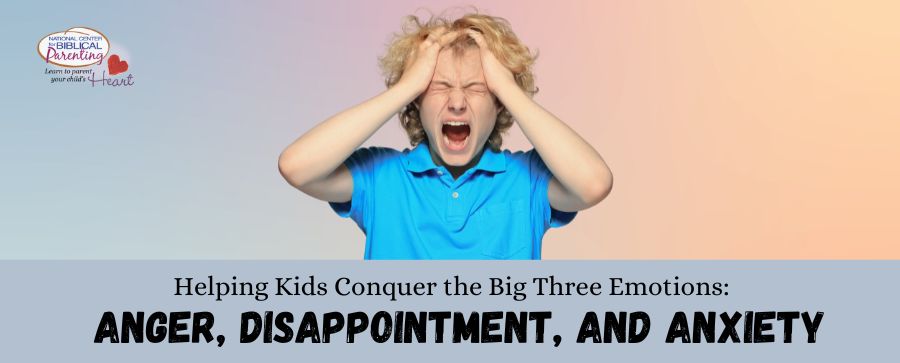How a Heart-Based Approach Transforms Arguing Into Life Skills

Every parent knows the feeling. You set a rule, your child pushes back. You state a consequence, your child tests the limit. Before long, you’re locked in a power struggle that leaves everyone frustrated and exhausted.
Arguing is one of the most common—and draining—challenges in family life. It often begins with something simple: a request to turn off a screen, clean a room, or finish homework. But instead of cooperation, you’re met with resistance, negotiation, or outright defiance. You try reasoning, reminding, even raising your voice. And still, the arguing continues.
The truth is, rules and consequences alone aren’t enough to stop arguing. They might bring compliance in the moment, but they don’t address what’s really going on beneath the surface. That’s where a heart-based approach offers a deeper, more transformative solution.
Arguing is a Symptom, Not the Problem
At its core, arguing is the use of logic, emotion, and repeated attempts to persuade or control someone else’s decision. It’s a pattern that children learn—sometimes from us, sometimes from their own problem-solving instincts—that says, If I push hard enough, I might get my way.
But arguing isn’t just about words. It’s a window into the heart. It reveals deeper issues like:
- A desire for control or power
- An inability to handle disappointment
- Poor emotional regulation
- Resistance to authority
- Weak internal motivation
When parents respond to arguing with stricter rules or harsher consequences, it often escalates the power struggle. The child pushes harder, and the parent responds with more control. The cycle continues—and the relationship suffers.
The Shift: From Control to Training
What if we stopped trying to control behavior and started training the heart?
A heart-based approach doesn’t ignore rules or consequences. Instead, it reframes them as tools for training, not just control. It invites parents to look beneath the behavior and ask, What life skills does my child need to handle this situation better next time?
For example:
- A child who argues when told “No” might need to learn emotional regulation and flexibility.
- A child who resists tasks or instructions might need to develop initiative and responsibility.
- A child who blames others when corrected might need to grow in humility and ownership.
Instead of reacting to the arguing, we can use these moments to teach our children how to handle disappointment, respond with respect, and manage their emotions.
Training Replacement Responses
One of the most powerful strategies in a heart-based approach is teaching replacement responses—practical phrases and actions that help children move from resistance to cooperation.
Here are three examples you can start teaching right away:
1. When a child hears “No”:
Train them to say, “I’m disappointed, but I’ll be okay.”
This simple phrase acknowledges their feelings while demonstrating resilience and respect.
2. When a child is asked to do something they don’t want to do:
Teach them to respond with, “Okay, Mom (or Dad),” and follow through.
This models cooperation and a willingness to submit to authority.
3. When a child is corrected:
Encourage them to ask, “What did I do wrong?” instead of arguing or blaming.
This shifts the focus from defensiveness to ownership and self-awareness.
These replacement responses aren’t magic words—they’re tools for building life skills that will serve children for a lifetime.
Why Rules and Consequences Fall Short
Rules and consequences are essential, but they’re not the whole story. They manage behavior, but they don’t transform the heart. When we rely solely on external control, we teach children to obey when we’re watching—but what happens when we’re not there?
A heart-based approach equips children to manage themselves. It builds an internal compass that guides decisions long after the parent’s voice is absent. It helps children develop:
- Emotional intelligence – the ability to recognize and regulate feelings
- Responsibility – taking ownership for actions and attitudes
- Respect for authority – seeing rules as tools for growth, not obstacles
- Problem-solving skills – learning to handle challenges without resorting to argument
The Long-Term Vision
When we train the heart, we’re not just addressing today’s arguments—we’re preparing our children for tomorrow’s challenges. We’re giving them tools they’ll use in friendships, school, work, and marriage. We’re teaching them how to handle conflict with maturity and grace.
This approach aligns perfectly with biblical principles. Proverbs 15:1 says, “A gentle answer turns away wrath, but a harsh word stirs up anger.” And 2 Timothy 2:23 reminds us, “Don’t have anything to do with foolish and stupid arguments, because you know they produce quarrels.”
By focusing on the heart, we move from managing behavior to discipling character. We create homes where respect, cooperation, and understanding flourish. And we give our children the tools they need to thrive—not just today, but for a lifetime.
Want to Go Deeper?

If you’re ready to move beyond rules and consequences and embrace a heart-based approach to parenting, I’d love to invite you to explore How a Heart-Based Approach Changes Everything!
This package includes:
- 13 practical, biblical videos that address common parenting challenges
- A Leader’s Guide to equip small groups or family ministries
- An eBook packed with strategies, real-life stories, and insights
Whether you’re a parent looking for fresh tools, a church leader seeking resources for family discipleship, or a small group leader wanting to make a difference, this package has everything you need.
Let’s stop reacting to arguing—and start training for lasting character and life skills.










Leave a Reply
Want to join the discussion?Feel free to contribute!